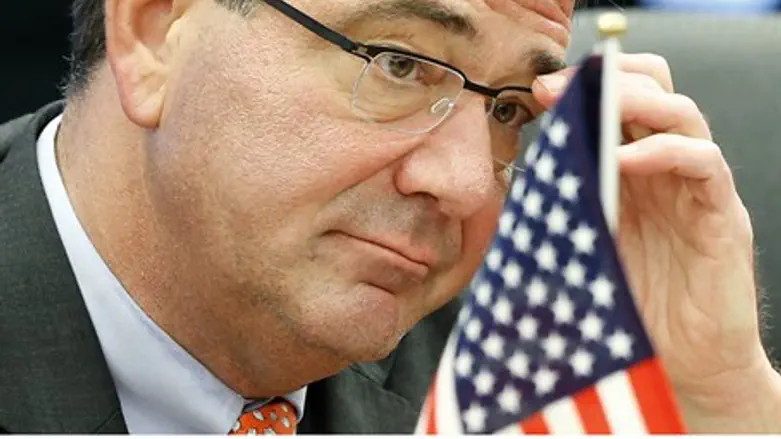
The United States supports Arab plans to create a unified military force to counter growing security threats in the Middle East, Defense Secretary Ashton Carter said on Monday, according to Reuters.
The American Defense Secretary added that the Pentagon will cooperate with the unified force where U.S. and Arab interests coincide.
Carter told reporters during a visit to Fort Drum in New York that U.S. military leaders who met with him in Kuwait several weeks ago thought that regional members of the coalition fighting Islamic State (ISIS) terrorists should be encouraged to do more if they were able.
"So I think if they are willing to do more, in this case with respect to Yemen, then that is a good thing because ultimately it is their region...The willingness of the parties there to step up and do more for stability in the Middle East is a good thing," Carter was quoted by Reuters as having said.
His remarks came a day after Arab leaders meeting at a summit in Sharm el-Sheikh, Egypt, announced the formation of a unified military force to counter growing security threats from Yemen to Libya.
Previous efforts have failed to produce an effective force, and participation would be voluntary. At least two countries were said to have committed to participating in the force.
Asked if the United States military would cooperate with the new force, the Defense Secretary said it would, noting that many of the participants, like Saudi Arabia and Bahrain, are already bilateral security partners with the United States.
"These are partners and security allies of ours, and when they act in a way that we regard as in our interests as well as theirs we will continue to partner with them as we have been in other matters," Carter said.
The decision to form the unified Arab force came after Saudi Arabia and several Arab allies began launching an airstrike campaign against the Iranian-backed Shiite Houthi militia that has been conquering Yemen.
The Yemen operation constitutes a showdown of sorts between Iran as head of the Shiite powers on one side, and the Saudis, Egyptians and other Sunni powers on the other battling for regional hegemony.
Iran has been exercising its influence throughout the region, through its terrorist proxy group Hezbollah in Lebanon, via Shiite militias in Iraq, through the Houthis in Yemen and with direct military action aided by Hezbollah in Syria propping up President Bashar Al-Assad.